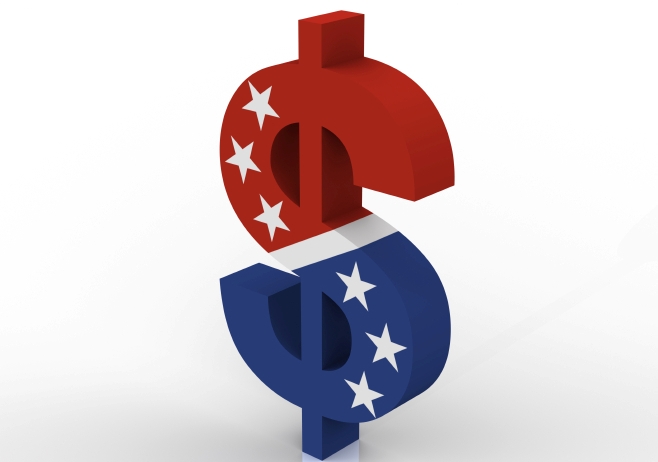Political Ads Fuel Financials and Feuds

WASHINGTON: Elections are both a minefield and a cash cow for broadcasters. Revenues rise, but so do tempers. As this year’s mid-terms draw closer and attack ads grow in stridency, targeted candidates are imploring broadcasters to pull them down. No can do, at least in some cases, reminds David Oxenford of Davis Wright Tremaine LLP.
“Just as is the case with federal candidates, ads by state candidates cannot be censored by a station,” Oxenford says at DWT’s Broadcast Law Blog. “Thus, except in certain very unusual situations--where the language of the ad would violate some federal criminal statute, e.g. if it is obscene--a station must air the ad as it was created. It cannot be rejected because the station disagrees with the content or the tone, and it cannot be pulled even if the opposing candidate believes it to be defamatory.”
Defamation comprises a false statement that causes damage to its object. It’s no simple matter to prove in court, according to Saper Law of Chicago. A plaintiff must prove “knowledge or reckless disregard for the truthfulness of the statement.” Consequently, rationality takes a beating in the political arena. Saper notes how a 2008 ad spun a candidate’s vote into a call to withhold medical care for rape victims.
THE SPIN CYCLES
The spin cycle continues. This year in Athens, Ala., for example, a hospital administrator told the News Courierhe’s being inundated with calls about a misleading political ad claiming a high occurrence of drug-addicted newborns. The mayor of San Juan Capistrano, Calif., is the subject of an ad inferring he was handcuffed and arrested 11 years prior, according to the Orange County Register.
In Missouri, Rep. Roy Blunt, running for the Senate, sent letters to TV stations threatening “all necessary action” to block attack ads, according to Gene Policinski of the First Amendment Center at Nashville’s Vanderbilt University. Another candidate went after four radio stations in Erie, Penn., over an anti-abortion ad, Policinski said. In California, gubernatorial candidate Meg Whitman is said to be threatening TV stations with legal action over an ad from the California Teachers Association.
Oxenford says that because TV and radio stations can’t sensor candidate ads, they have no liability for the content. However, the same is not true of non-candidate ads.
“In those cases, the station does have the option of whether or not to run the ad,” he says. “Thus, if the station is on notice that there is potentially defamatory content in an ad, it must do some investigation of that ad, and make an informed decision about whether or not to allow the ad to continue to run. If it does not investigate, and continues to run an ad that is defamatory after receiving notice of that fact, in some extreme cases, it could face liability for that defamatory content.”
SECRET MONEY
Such non-candidate ads abound this year due to a January Supreme Court ruling unimpeding campaign advertising by corporations and unions. The decision was denounced by the Obama Administration and continues to draw objections. The League of Women Voters last Friday called on TV and radio stations to “refuse political advertising paid for with secret money.”
“We are seeing huge sums of money from secret sources going into campaign advertising, much of it the negative advertising that poisons the airways,” said Elisabeth MacNamara, national president of the League of Women Voters. “Because of changes in the law brought about by recent Supreme Court decisions, there are no disclosure requirements that let the voters know who is paying for the ads.
“That’s why we are calling on media outlets and political candidates to act responsibly. The media should refuse these secretly-funded ads and candidates should repudiate the ads--even if they help the candidate get elected.”
$3 BILLION BUSINESS
Analysts initially expected the ruling to add as much as $450 million to the $2.1 billion expected to be spent on political TV ads. The total political expenditure on broadcast TV as of Oct. 10 was $1.23 billion, according to Wells Fargo’s Marci Ryvicker.
The firm’s analysts are tracking weekly political ad spending on the medium from now through the Nov. 2 elections. Ryvicker said broadcast TV typically takes in around 60 percent of all political ad dollars, and that 75 percent of spending comes within eight weeks of the election. Around $148 million was spent the week ending Oct. 10, the most yet among weeks tallied, she said.
TV stations are the primary beneficiaries because of the local nature of mid-term political races. Stations in Los Angeles, Chicago, New York and San Francisco are among those expected to take in the most money. Networks typically own and operate the affiliate stations serving those larger markets, but they’re still looking for local lucre, The Wall Street Journal said.
WSJ says NBC Universal is selling 11 national spots in “NBC Nightly News” over the next two weeks to local stations, which can sell them at a higher rate. Disney was said to have sold six late-October, prime-time slots to ABC stations.
Political ad spending across all media is now expected to reach $3 billion.
See...
January 21, 2010: “Supreme Court Cuts Corporations Loose”
Those elements turned over include a 63-year old law barring corporations and unions from directly buying campaign ads.
March 2, 2010: “Political Windfall Unlikely to Move CBS Shares”
Analysts expect politics to pay well this year. Broadcasters are expected to reap as much as $2.1 billion from political and campaign advertising.
The professional video industry's #1 source for news, trends and product and tech information. Sign up below.
